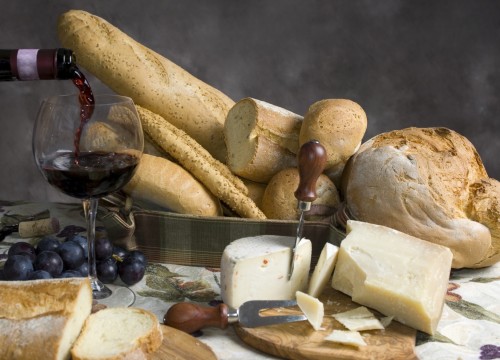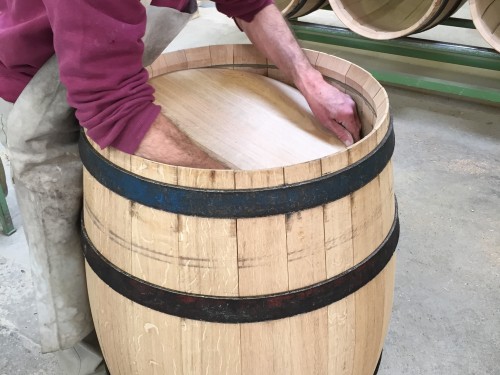
Several years ago I discovered I had a gluten allergy. When a doctor presented me with a long list of foods and beverages to avoid, I panicked until I saw that wine wasn’t on it. Bread, pasta, cookies…okay, I’ll give it all up. I get wine.
A few years later when I was working for a cooperage, I learned that some cooperages put a small amount of wheat paste in the croze (a groove carved into the staves to fit the heads) to seal the barrel. Not all cooperages use a wheat paste, but some do.
Since I knew that wine was on the “safe” list for gluten free, this never concerned me. But during the first couple of years I was selling barrels this subject came up a few times. One winery told me it doesn’t claim its wine is gluten free because of the possible contamination from barrels. So I started to wonder (yes, I can be neurotic), could there be gluten in wine and the experts on gluten allergies just don’t understand how wine is made?
For people with Celiac Disease, a genetic disorder in which the consumption of gluten causes damage to the small intestine and prevents the absorption of nutrients (sometimes with the immediate effect of getting violently sick), this could be alarming.
I’ve heard numerous accounts on online forums of people with Celiac drinking wine regularly and not getting sick. I also found the following facts to be reassuring:
1) Cooperages only use a trace amount of wheat paste, which is insignificant in a 225L or larger barrel of wine.
2) If all the wheat paste dissolved into the contents of the barrel, it would not be an effective seal.
3) Before a barrel leaves the cooperage, it is filled part way with water and rolled to test for leaks. This rinses the barrel some too.
4) Most winemakers fill barrels with water (often hot) before filling them with wine so the wood expands and seals in the contents.
5) Many wines are fined before being bottled, which removes solid particles from the wine.
For the person who is super sensitive to gluten and wants to be absolutely certain, I advise drinking wines that are oak-free or finding out if a winery uses barrels that are sealed with wheat paste. Winemakers can ask their barrel suppliers what product they use to seal the barrels. It has become more common that barrels are sealed with either a synthetic product or buckwheat (despite “wheat” being in the name, buckwheat does not contain gluten).
For most gluten-sensitive people, it should be enough to know that the major authorities on Celiac Disease continue to list wine as a gluten-free product. And, yes, they do know how wine is made.

I was born with Celiac Disease, have been taking back bottles of merlot
to store where purchased, thought that particular bottle had gone bad.
Then, every time I purchased a bottle of Merlot, I would get intestional
problems related to colonoscopy’s. I drank Anderson, copolla, napa valley,
called each winery and was told they have to say it could contain gluten
as they cannot test each bottle. So there you have it.